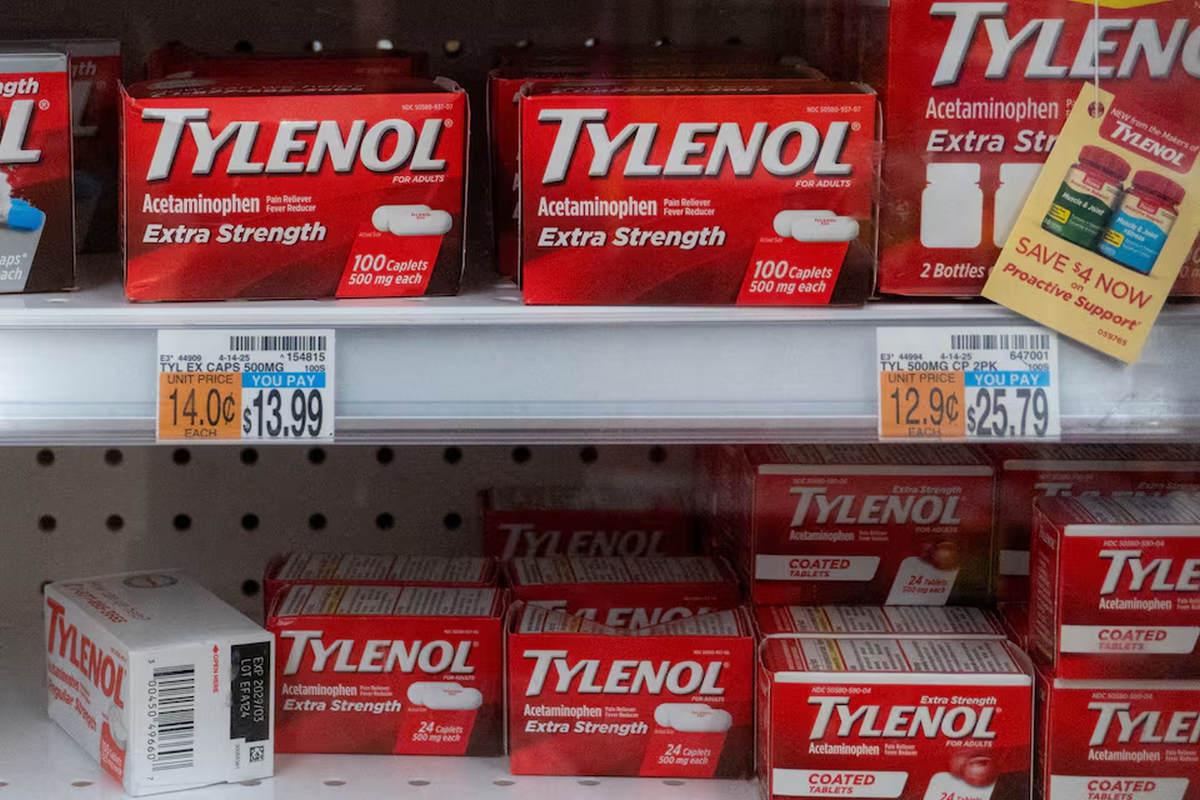Amid controversy over US President Donald Trump’s comments linking the use of Tylenol and other related paracetamol products by pregnant women to autism in children, experts and industry executives say that since India’s export of the drug to the US is less, it will hardly affect the country’s pharma exports to America.

Photograph: Kylie Cooper/Reuters
Nikkhil Masurkar, CEO at Entod Pharmaceuticals, said paracetamol is likely to account for a low single-digit share of India’s US-bound pharma exports and that the recent clinician messaging by the US Food and Drug Administration (FDA) is unlikely to dent the overall US paracetamol demand materially, so India’s export volumes should be largely unaffected.
“If anything, smaller players could feel more procurement and compliance pressure rather than a demand collapse,” he added.
“US paracetamol supply chains rely heavily on non-Indian sources for active pharmaceutical ingredients (APIs), historically a large share from China, implying India’s export contribution in this single commodity is modest,” he added.
Last week, President Trump and US Health Secretary Robert Kennedy Jr made controversial claims linking the use of common painkiller Tylenol (acetaminophen) by pregnant women and similar products to an increased risk of autism, while announcing new regulatory guidance alerting physicians.
Acetaminophen and paracetamol are the same active medicine, with differences only in name usage. Acetaminophen is used mainly in the US and Japan, while paracetamol is the common name in most of the world.
Namit Joshi, chairman for the Pharmaceutical Export Promotion Council of India (Pharmexcil), said that the impact will largely depend on how American physicians act on the FDA’s advisory.
“Currently, there is no established link between paracetamol and autism, and physicians remain the final authority,” he added.
Experts add that over-the-counter (OTC) paracetamol in the US is buyer-consolidated with big retailers and larger private-label contract manufacturers involved, subject to tough quality assurance, continuity of supply, and liability expectations.
So, the visible shelf share skews to larger and more established suppliers.
“Smaller firms, therefore, tend to participate via API supply, contract manufacturing, or limited stock keeping units (SKUs) rather than broad, branded OTC presence,” people said.
Joshi added that paracetamol accounts for only about 0.56 per cent of India’s overall API exports to the US, valued at roughly $2.77 million in FY25.
For FY24, India exported paracetamol products worth $182.31 million, according to data from the Ministry of Commerce and Industry.
Of this, exports to the US amounted to $21.98 million.
According to reports, a recent review of 46 studies had found links between using Tylenol during pregnancy and a higher risk of neurodevelopmental disorders like autism and ADHD in children.
The risk seemed to increase when acetaminophen was taken regularly throughout pregnancy.
Following this review, the FDA announced plans to revise the pregnancy safety classification of acetaminophen.
Doctors add that while the FDA’s recent communications acknowledge studies reporting an association between prenatal acetaminophen use and neurodevelopmental outcomes, the agency still says there’s no clear causal evidence and continues to monitor the science.
Tripti Raheja, director for Obstetrics and Gynaecology at CK Birla Hospital, Delhi, said such studies can show links, but cannot prove that one thing causes another.
“As a result, current medical guidelines regard acetaminophen as the safest choice for managing pain and fever during pregnancy, compared to other options like ibuprofen or combination drugs such as combiflam.”




